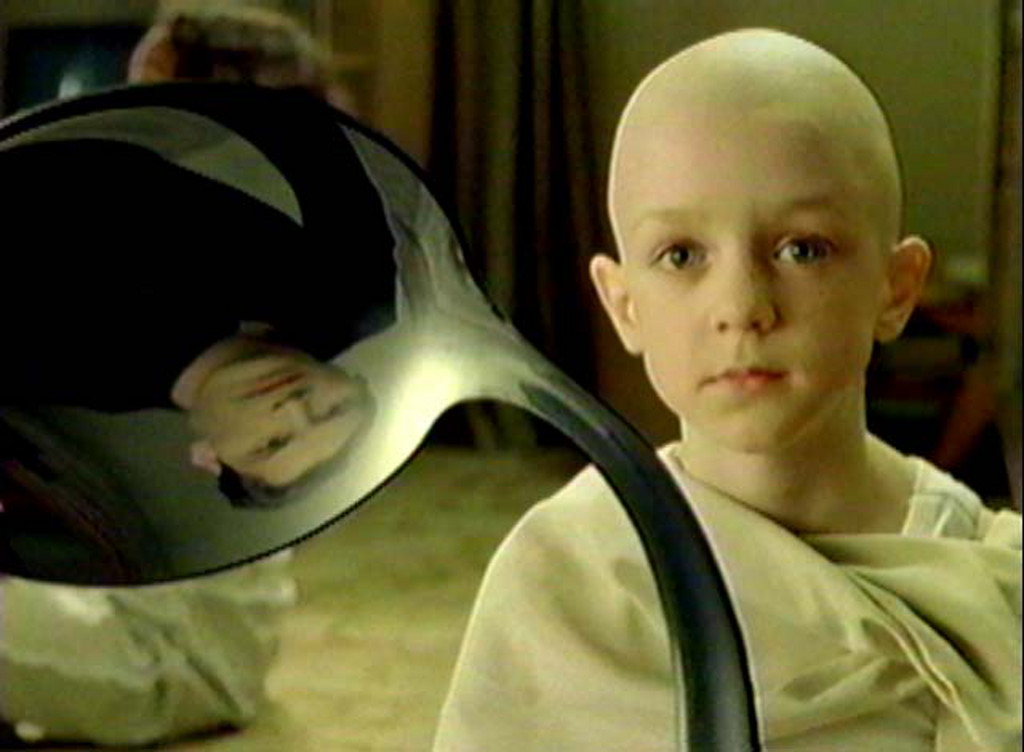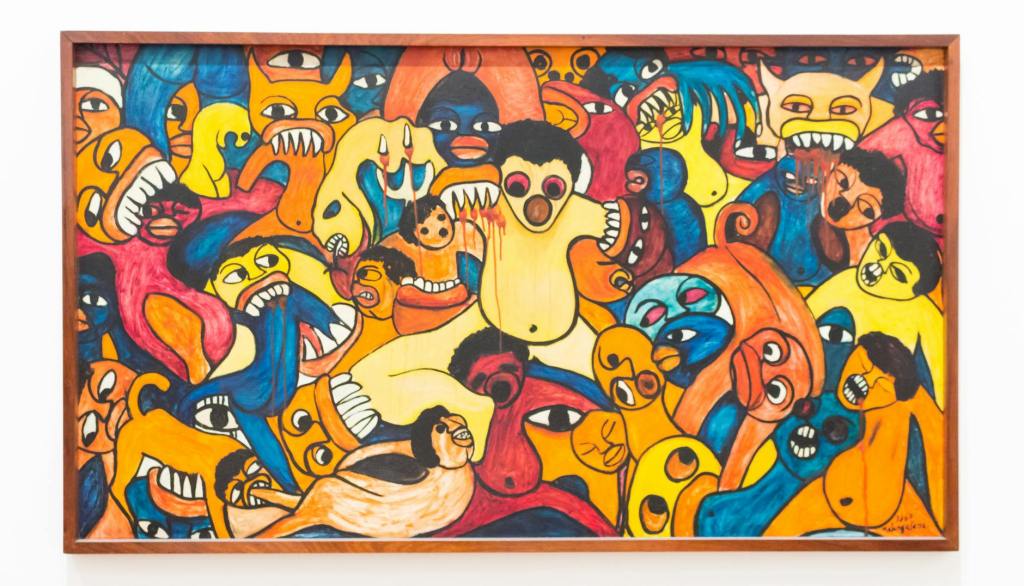SPOILER ALERT: this essay assumes you have seen The Matrix, that you know certain things, and is full of spoilers.
Continuing on the theme of celebrating the 25th anniversary of The Matrix, I feel compelled to say a few words (or a couple of thousand) about my favorite movie, which it is, only rivaled by The Lord of the Rings. I remember my best friend of the time asking me if I had seen it, which I had not. I asked him what it was about, and he replied, “You just have to see it.” His taste in movies was usually pretty good, so I went to the theater without argument.
Like everyone who sees that movie for the first time, I was riveted instantly by the graphics and the stellar, cutting-edge action. As a woman, seeing the movie open focused on Trinity, one of the strongest female characters I’ve ever seen in a movie, was very gratifying. I was hooked by the plot right away, not to mention the music: I already knew most of the songs in the soundtrack.
It was the scene where Neo meets Morpheus that got me right between the eyes, though. Being at a movie, I was eating popcorn, munching away as they talked. Morpheus began to speak about how Neo had felt all of his life, “like there’s something wrong with the world”. I’m a person who often lacks the words for how they feel until someone else says them. I felt that way as Morpheus said that, and as he spoke of the “splinter in your mind” driving Neo mad and the different ways that we are surrounded by The Matrix without knowing it.
The scene ends after Neo takes the red pill and they walk into the other room. As they did so, I realized I had stopped chewing my popcorn several minutes prior because I was so focused on what was being said. There was something wrong with the world, it was something I felt in the marrow of my bones. There was too much injustice everywhere for there not to be. I just couldn’t figure out why: hence the splinter.
The movie buried itself into my subconscious. I saw it at least once more at the theater and bought it for home viewing as soon as it was out later that year. I watched it frequently and bought the soundtrack, after which it lived permanently in the CD carousel. It was missing the song Neo is listening to on his headphones before he begins “waking up”, so I scoured the music credits looking for what was missing and bought that CD as well.
Life went on. I went to college for a philosophy degree for a couple of years and then had to leave when I couldn’t afford tuition anymore. A couple of years later I started a family, and doing things like spontaneously watching The Matrix fell by the wayside in favor of watching Blue’s Clues and Little Bear. The inevitable daily stresses of parenting and modern life took a toll on my mental health, and I found myself slowly spiraling downward.
Things got bad enough to seek professional help in 2011, at which point my life spiraled all the way down, grinding to a halt due to the medications I was put on. I spent five years living as a zombie before slowly quitting the offending medications in 2017-2018 (with medical supervision), at which point I began my own process of “waking up”. I became more interactive, I read more, and I began laughing again, something I had not done in five years. I felt alive once more.
This process peaked in the spring of 2018, the result of a combination of numerous factors from the physical to the metaphysical. I had a psychological and spiritual experience that was very intense from an internal visual standpoint. My mind made use of a lot of archetypal imagery from movies I had seen, especially The Matrix, as a guide on what seemed to be a days long “trip” in the psychedelic sense of the word.
When it was over, I truly did feel as though I had “awakened” in some profound way. The world was the same, and yet it seemed different somehow, as though I were truly seeing it for the first time despite having lived in it for decades. My life before the episode seemed like a fuzzed out black-and-white photo, while life after it was in HDR. And I definitely had the sensation of “tumbling down the rabbit hole”, just like Neo.
Another critical element of this experience involved that sensation of feeling like “there’s something wrong with the world” because of rampant injustice. 2018 was two years after Trump had been elected, something that only dimly impacted me because of the medications I was taking. As I came out of the drug-induced haze, it began to dawn on me what had happened, and I became horrified.
I became fixated on how this could have occurred, and essentially became obsessed with one of humanity’s oldest philosophical questions: The Problem of Evil. The “splinter in [my] mind” really was driving me somewhat mad, and I feel as though my soul took a journey in an effort to answer the question and remove the splinter.
My experience was not unique. In fact, it was rather archetypal in nature, resembling mythological and allegorical tales told by everyone from Plato to Carl Jung to Joseph Campbell and many others. Tales of journeys undertaken by explorers through treacherous regions in search of treasure, whether that journey was undertaken willingly or not. Whether taken literally or figuratively, I wasn’t alone.
Others in modern times have made philosophical analyses of The Matrix, and one of the primary discussions typically revolves around Plato’s Allegory of the Cave. In this allegory, there is a cave in which people are chained facing a wall upon which shadows are cast by a fire behind them. The cast shadows are made by others holding puppets before the fire, but the sitting people don’t know this. They think the shadows on the wall are reality.
If they were to be freed from their chains, they would likely have to be dragged to the surface due to their fear of the unknown and refusal to believe the situation. If someone does leave, they are instantly blinded by the sunlight, but once they adjust, they see the world as it is rather than the dark, confined cave they’ve been in. They want to tell the others in the cave, so they go back, but are blinded once again by the darkness of the cave and must adjust. The others take their blindness as evidence of a harmful journey and refuse to follow. All of their efforts to tell others or get them to leave are resisted, again sometimes with violence.
After my awakening experience and probably a couple of dozen viewings of The Matrix over the last 25 years, I can safely say that the parallels between the movie, the Allegory, and modern society are glaringly obvious to me. Most people really are mostly “asleep”, mindlessly shuffling from bed to work to couch and back to bed. It’s not their fault, the world has been engineered to shoehorn them into that lifestyle in the name of milking them for as much money as possible while paying them as little as possible. They do what they can to cope with their existences, numbing out on what few solaces they can afford and sleeping the rest of the time.
Being “asleep” makes them vulnerable to the puppeteers of the world that want us to believe one thing while they do something else behind our backs. Being human makes them resistant to being awakened to that malfeasance. In many instances, people have been taught to trust those “puppeteers”, and it’s very difficult psychologically to swallow that someone you trust is or has been lying to you or is actively working against you.
People are also constantly being fed distractions from true reality in various forms, from being bombarded by Peak Television to TikTok to Facebook and X/Twitter. The powers-that-be want people doing anything but paying attention and educating themselves about what’s really happening in the world. They want them so tired and weak from daily life that they have no energy left to do anything but go home and eat food that’s bad for them while they do something on a screen. It perpetuates the cycle.
I can speak about the resistance that comes from others once one “returns to the cave”, as it were. That resistance has largely come in the form of medical pathologizing of my experience as a manic episode, which allows people to dismiss my experience as being “crazy”. My difference in perception of reality, the “newness” with which I experience things now, is seen as “evidence of a harmful journey”, and it is very difficult to get people to listen to me.
Joseph Campbell spoke of this possibility in his book The Hero With a Thousand Faces. In his description of the hero’s return from their journey, he lays out three possibilities. The first is the best: the hero returns, is accepted and understood by everyone, they pass on their newly gained knowledge, and go to live out their life happily. The second isn’t so happy: the hero returns, but is not understood by anyone and even considered crazy, and lives out their life in isolation and confusion. The third option is perhaps the unhappiest: the hero returns, but they really have been driven insane by their journey, once again leading to a misunderstood life of isolation.
I don’t deny there are elements of my experience that resemble mania and a later much less pleasant episode did force me to begin medication again (different ones that don’t make me a zombie, thankfully), but I’m a smart researcher whether I’m having mental difficulties or not, and the months of research I did following my awakening led me to the conclusion that my experience was more spiritual in nature than psychological. Nor do I believe that having mental issues precludes the validity of one’s spiritual experiences.
I believe mine and others’ similar experiences, both now and throughout history, raise serious questions about the true nature of mental experiences and the overlap between things like mania and psychosis, spiritual awakenings, and psychedelic experiences, all of which bear similarity to one another. Humanity could learn a great deal by exploring and studying these phenomena and how they relate to one another and in the process, come up with ways to help some of the world’s most long-suffering members as well as forge a progressive path into the future.
As for whether or not I am truly crazy or merely misunderstood is a question I’ve asked myself many times. I even asked myself if I actually thought I was “the One”, and the answer was no, of course. That was patently ridiculous. I’d merely relied heavily on the deeply philosophical premises and archetypal imagery presented in the movie to get me through an experience that bore similarity to Neo’s. His experience is itself an archetypal one revealed within the “awakening” experience described in things like Plato’s Allegory of the Cave, or the Enlightenment of the Buddha, or countless other tales of people having similar experiences throughout history. These “awakenings” are not restricted to “special” individuals, they can happen to anyone, though seem to favor those of a deeply mystical, philosophical, or spiritual nature.
As a philosopher at heart, I’ve decided to take after Descartes, who posited that the only thing one can be truly certain of in life is one’s own existence – “I think therefore I am.” Everything else is a question, particularly of relative perspective. Those closest to me understand me just fine and do not consider me crazy. Those who don’t know me well tend not to understand me, and I occasionally get “The Look” from them.
Sometimes someone hears and sees me, though, typically someone mystically or philosophically minded themselves and already thinks about the world in the same ways I do. I treasure the presence of these individuals who understand me and take me seriously, even knowing I also bear a mental illness label. They know what I now know after awakening, that the world is a very complexed, nuanced place that in truth, does not operate on a black-and-white, this-or-that, either/or paradigm. We are taught that two opposing ideas cannot both be true at the same time, and that itself is false.
Part of the beautiful game of philosophy, mysticism, and spirituality is learning how to reconcile two opposing ideas to generate a third forward-moving idea that incorporates both opposing ideas. This is a concept that makes little sense to a duality-based thinker like so many people are, but it is a repeating archetypal theme across history throughout many philosophies, religions, and cultures. Within this world of the Reconciliation of Opposites, I can have both a “crazy” psychological and a valid spiritual experience simultaneously. In fact, the two may be inseparable.
This is a very important idea for people to consider in these polarizing times when it seems like different groups of people are being pushed farther and farther apart by seemingly opposing views. There are certainly times when an element of violence or the threat of harm precludes negotiating with someone in opposition, but when the only barrier is relative perspective, every effort must be made to overcome that barrier by each side and see the other’s view in an effort to reconcile the conflict, for the conflict itself is a threat to both parties. This is much easier said than done, of course.
The prevalence of duality-based thinking in our culture means that I will always be misunderstood by the majority of people because that’s not how I think anymore. That’s not a statement of superiority, merely difference. All I can do is live my life as truthfully and authentically as possible while applying my Knowledge in ways that demonstrate that there’s a better way to do things. A better way to think about things that leads to more progress and less conflict.
In the meantime, I’ll continue my studies, through which I continue to learn new things, both about the world as well as myself. Things that both question and validate my experience, and I take them all seriously. However, after nearly six years and considerable misunderstanding by others, I still get more validation out of what I learn than questions. There are some who would say I’m suffering from confirmation bias, but there are ways to keep oneself from falling into that trap and I try to follow them diligently to avoid that. Because I’m after the Truth, and cheating by using logical fallacies is not the Path to the Truth.
“What truth?” – Neo
“There is no spoon.” – The Orphan
The Matrix





Leave a comment